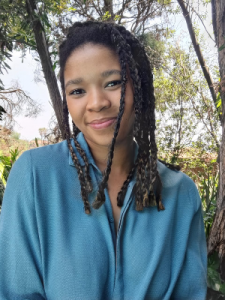Have you ever tossed a pebble into a quiet pond and stood back to observe what happened? Waves extend outward from the point of entry as the pebble settles to the bottom, disturbing the water in ever-increasing rings of motion. The single event of the stone dropping into water has a ripple effect on everything in its immediate vicinity, causing countless, huge, and extending waves. Similarly, a single loss in one’s life often has a ripple effect and causes several disruptions that extend over time and space. In our lives, a loss, such as the death of a loved one, serves as the pebble in our pond. When we lose something or someone significant to us, the grieving process does not end with the mourning of that singular loss. Rather, the singular loss triggers a chain of events known as secondary losses, which often cause us to feel as if we’ve lost everything and that the sorrow will never end.
When we lose anything that we care about, whether by choice or by circumstance, it is considered a loss. Within modern day society it is common to use the term “loss” to describe the incidence of death-related losses. The notion, however, can be used to describe a variety of changes and life events in the much broader sense, and it is important that we know the various types of losses that can occur. The term “primary loss” is generally used when referring to the initial loss that we experience, whereas the term “secondary loss” is used to describe the subsequent loss or losses that come to exist as a result of the primary loss. This notion does not imply that secondary losses are any less important, intense or difficult; it just expresses that they emerge out of, or are a consequence of, the primary loss. When someone suffers a death-related loss for instance, they may be grieving the physical loss of a loved one (primary loss), but may also grieve the loss of income and the loss of a sense of identity or a future (secondary losses).
When you contemplate the consequences of events that result in grief and loss, it seems almost obvious that there will be a ripple effect of some sort. However, grieving people are often taken by surprise by these continuous losses and the way in which they intensify their grief. The fact that supportive friends and family rarely properly acknowledge secondary losses is also crucial to mention. I’ve yet to come across a sympathy card that says, “I’m sorry to hear you’ve lost confidence in your fundamental belief system,” or how about “Please accept my heartfelt condolences on the loss of half your household income.”
Okay yes: I’m being a bit silly. These cards would most likely come across as incredibly insensitive, but that is just the problem. When we experience secondary loss, we often find it difficult to give, or receive, support and acknowledgement for it because it is so intimate and particular.
As a general rule, people tend to perceive a grieving person as being concerned with a single, significant loss. Secondary losses, however, add to the stress of an already daunting situation. Each of these individual losses is distinct and complicated in and of themselves. When you put them all together, the phrase “the whole is larger than the sum of its parts” takes on a whole new meaning.
When we talk about ‘categories of loss’ or ‘types of grieving,’ I think it’s important to remember that some situations might constitute numerous types of loss at once. This is especially true for secondary losses, which can also be considered disenfranchised and/or ambiguous.
Secondary Loss as Disenfranchised Loss:
Disenfranchised loss was first defined by grief theorist Ken Doka as “grief that humans experience when they sustain a loss that is not or cannot be openly acknowledged, socially sanctioned, or publicly lamented.”
As previously said, secondary losses are, more often than not, extremely personal like loss of faith or loss of self-worth for instance. Intimate or private experiences are rarely acknowledged out loud, even by the person who is experiencing them. Moreover, secondary losses are typically non-death-related losses, such as losses relating to financial stability, sense of self, sense of purpose, and support systems, among other things. Unfortunately, non-death-related losses often go unnoticed and unsupported. Friends, family, and even those who have experienced non-death-related losses may be more prone to see these experiences as challenges to overcome rather than something that needs to be grieved.
When a person experiences a disenfranchised loss, it signifies that they are not receiving the support or affirmation that they require. Depending on who you ask, this could indicate different things. Whereas one individual may feel they simply require validation from themselves, another person may believe they require the approval of their entire extended family. Regardless of the cause, the impact of disenfranchised sorrow is that the person experiencing it feels alienated, invalidated, embarrassed, weak, and so on and so forth.
Secondary Loss as Ambiguous Loss:
When someone experiences ambiguous loss, they may be unsure about who or what has been lost, or they may be unsure whether a loss has occurred at all. Consider the following three basic scenarios:
- A person is physically present yet psychologically absent in one way or another (ex. dementia)
- A person is physically absent yet may nonetheless be alive in another way (ex. absentee parent)
- A person is physically present, but a significant element of their identity and/or the nature of their relationship with them has shifted in some way (ex. divorce).
In each of these instances, a significant change has occurred, and the change has resulted in a sense of bereavement and sadness. However, because the person is still alive and there is often optimism that things will improve and return to “normal,” a person may be divided and confused about whether or not they should grieve these losses.
What can you do to help?
Simply recognizing and admitting the spectrum of secondary losses you’re suffering might be an excellent place to begin the healing process. It also helps to remember that loss is loss, no matter how big or small, and that you have earned the right to grieve these things. Also, if you feel that you are not receiving the support you require from your family and friends, you may want to consider joining a support group or seeking individual counselling.
The Author: Didi Tshabalala (Humanitas Intern)
Here is a little bit more about her:

My name is Didinhle and I have a Bachelor’s in Social Science. I majored in Psychology and Sociology because of my deep passion to better understand the internal and external forces that affect human beings, and the unique ways in which they can influence each individual.
What I offer is an integrative approach to counselling that is Person-Centred in nature. I aim to empower my clients to find solutions to the challenges in their lives in a supportive environment. As a counsellor, I value exploring the world of my clients and its challenges with honesty and respect. I am a sincere, caring, intuitive, and insightful professional who aspires to establish a safe, therapeutic environment that encourages self-awareness, mindfulness, and personal growth. I approach counselling from a holistic and humanistic perspective, meaning that I acknowledge both the mind-body connection, as well as the individuality and unique aspirations of each client. Through my approach, my hope is to better facilitate the journey toward health and happiness – in relationships, emotionally, spiritually, psychologically, and physically – as well as a greater sense of overall wellness and the satisfaction in life.
I am passionate about empowering my clients and helping them discover and rediscover themselves in the midst of life difficulties. I am especially akin to helping individuals who are struggling with low or depressive moods, anxiety, stress, trauma, and any sort of life crisis.


